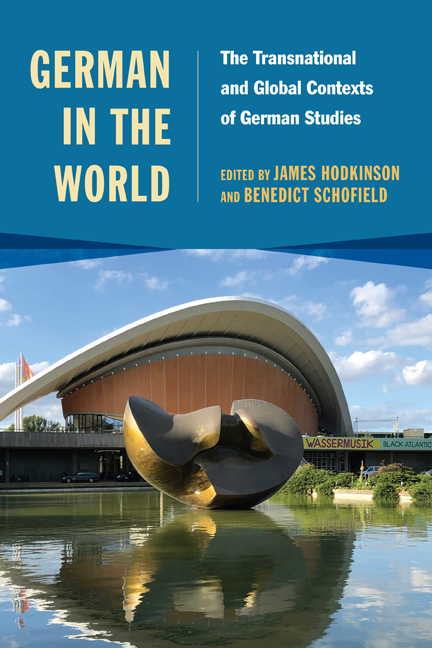2 - Embodying and Distributing World Literature: Goethe’s Novelle in the Context of the 1820s
Published online by Cambridge University Press: 06 October 2020
Summary
World Literature Redistributed
THIS ESSAY RETURNS to Goethe's original elaboration of a model of world literature in the late 1820s and early 1830s to get a clearer sense of the specific literary practices he conceived as contributing to the project. Paying attention to the techniques that might distinguish world literature has not been a focus in early twenty-first century debates on the topic. Indeed, David Damrosch, in his seminal study What Is World Literature? (2003), doubts that we could define the specifically literary aspect of world literature: “Any global perspective on literature must acknowledge the tremendous variability in what has counted as literature from one place to another and from one era to another.” Consequently, as Elleke Boehmer has recently noted, “We look in vain to world literature studies to learn more about the poetics of this writing—about, say, its rhetoric of address, tropes of identity, or paradigms of worldliness.” Boehmer has responded by elaborating her own postcolonial poetics, exploring how readers, “invited by the writing's shaped substance, or by its poetics, … step forward to gather in the intensified knowledge or awareness” that postcolonial writing offers of the distinctive, often unfamiliar context in which it was written. Returning to the full range of relevant texts by Goethe before and after the famous conversations on world literature with Johann Peter Eckermann in January and July 1827 (FA, 39, 223–28, 255–57) allows us to construct a fuller and, where necessary, critical picture of the literary practices through which the ideal was originally promulgated. A key element in my argument will be a reading of Goethe's short Novelle (Novella, 1828) (FA, 8, 531–55), which can be read as a founding document of world literature. It was written, discussed, and rewritten in late 1826 and early 1827 (FA, 8, 1054–60), accompanying other important moments in the articulation of the idea: the 1827 issue of Goethe's journal Über Kunst und Altertum (On Art and Antiquity) in which Goethe first used the term “world literature” in print (FA, 22, 356); the poetry volumes of the ongoing new edition of his works that Goethe and Eckermann prepared for publication in 1827, including Goethe's translations of Byron and Manzoni under the rubric “Aus fremden Sprachen” (From Foreign Languages, FA, 2, 53–72);
- Type
- Chapter
- Information
- German in the WorldThe Transnational and Global Contexts of German Studies, pp. 33 - 56Publisher: Boydell & BrewerPrint publication year: 2020



